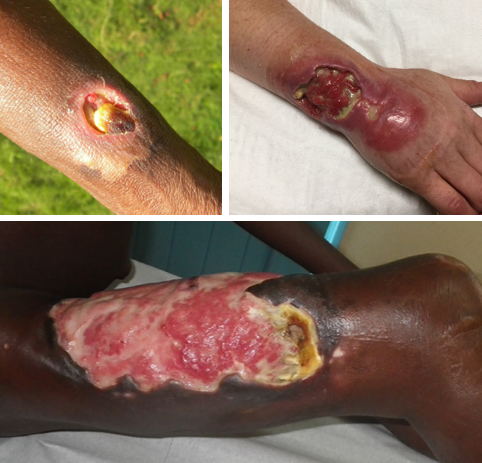- Joined
- Dec 3, 2017
- Messages
- 26,290
- Reaction score
- 16,771
- Gender
- Male
- Political Leaning
- Progressive

Rise of flesh-eating ulcers in Australia’s Victoria state baffles scientists
Buruli ulcer first emerged in Australia in the early 1900s, but cases have skyrocketed in recent years. The disease can lead to large open wounds, and if untreated, permanent disfiguration and disability.
- Buruli ulcer first emerged in Australia in the early 1900s, but cases have skyrocketed in recent years
- Much is still unknown about the disease, which can lead to large open wounds, and if untreated, permanent disfigurement and disability
Australian property stylist Ali Waight thought she had a mosquito bite when a red welt appeared on her left leg in early 2018. But within days, the mark had “developed into a massive hole”.
What followed was almost a year of fatigue and misery for the 45-year-old, who lives in the coastal town of Point Lonsdale, an hour’s drive south from Melbourne.
“I wasn’t allowed to play with my three kids, I wasn’t allowed to go swimming, go to work, ride my bike, walk the dogs, I couldn’t even walk. It just went on and on and on. It was just debilitating,” she said.
====================================================================
I just took Australia off my bucket list.

